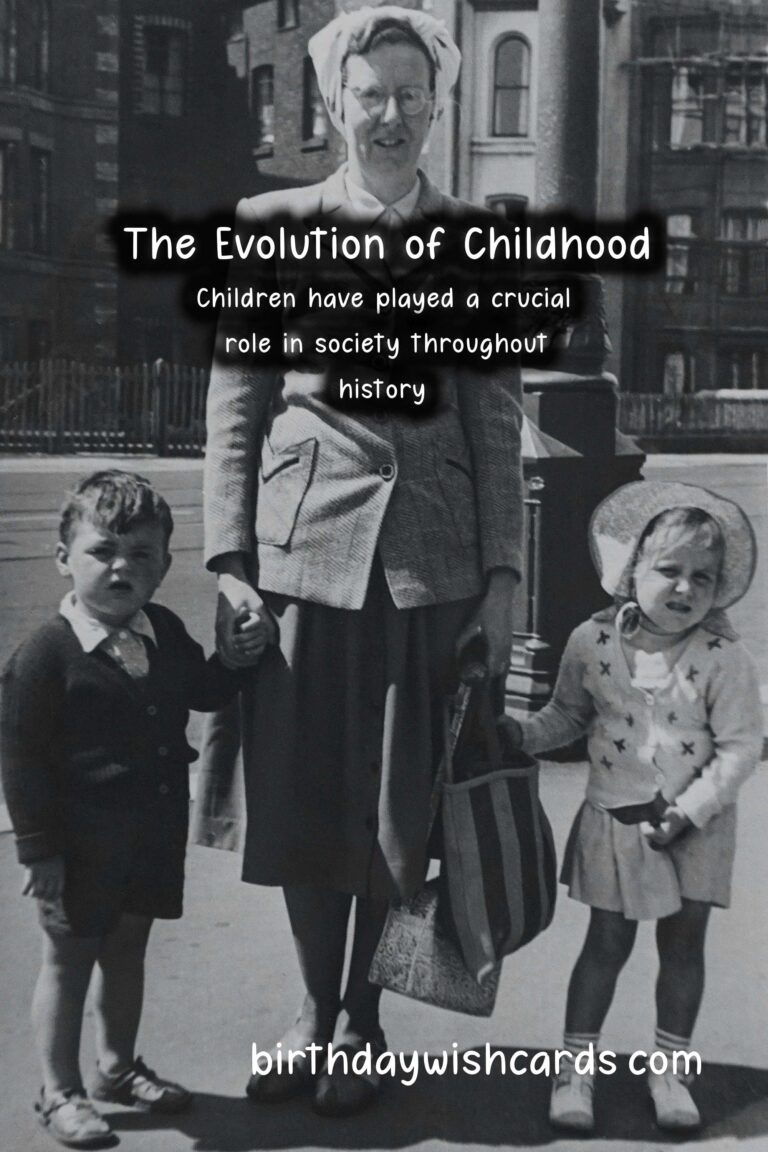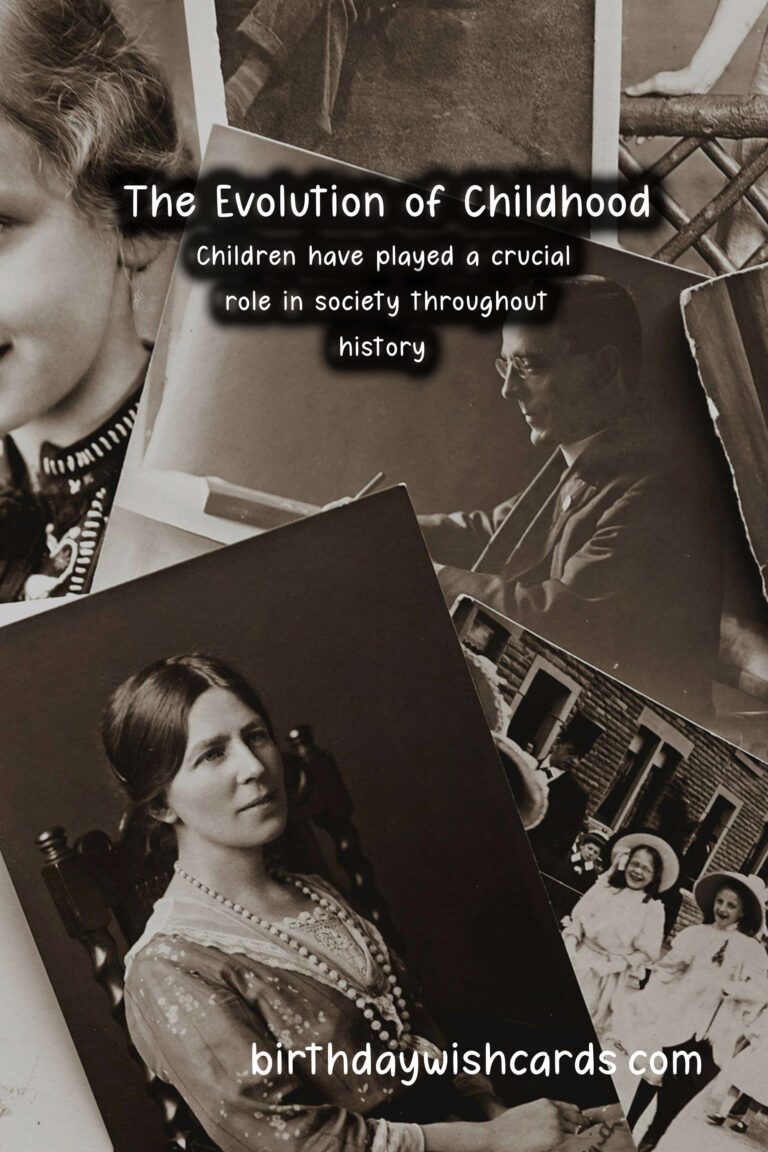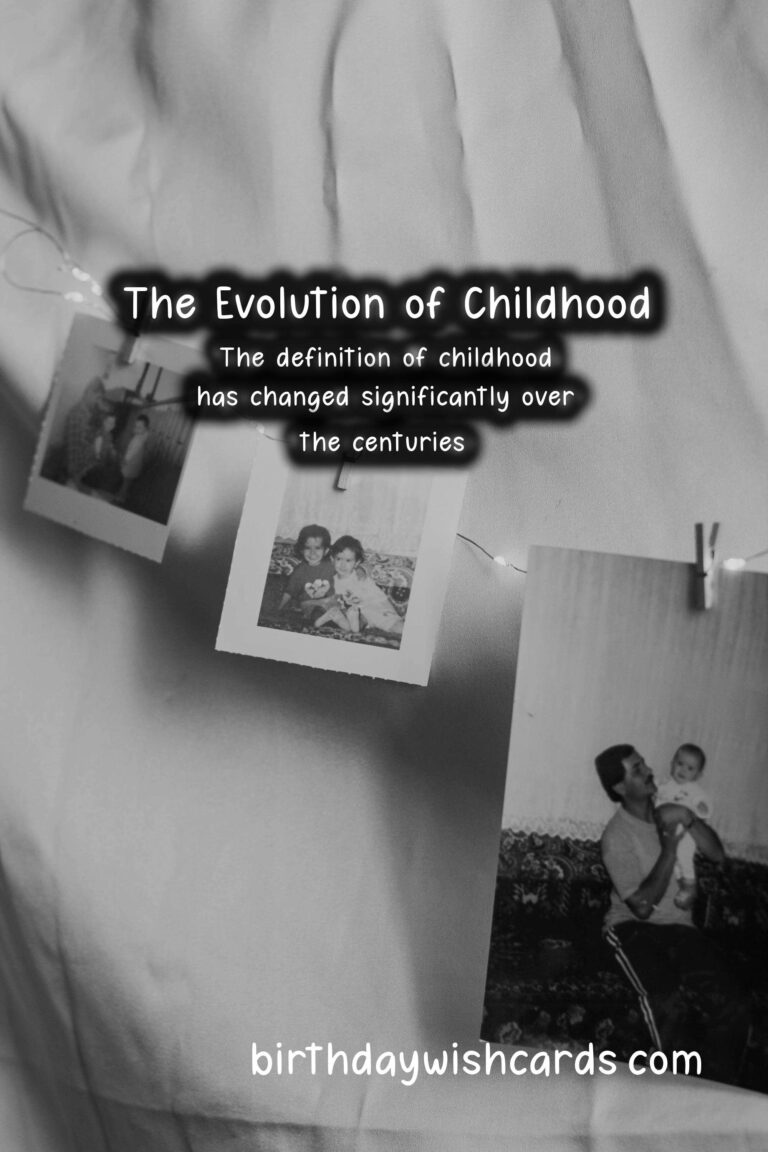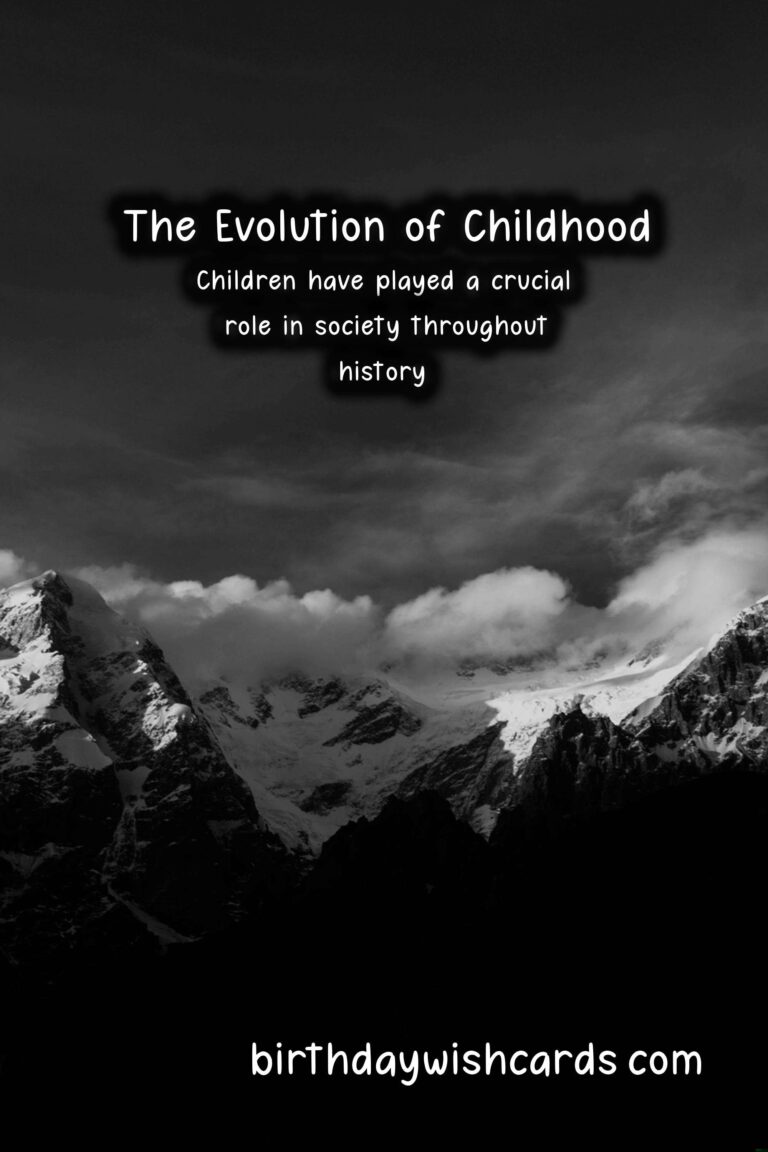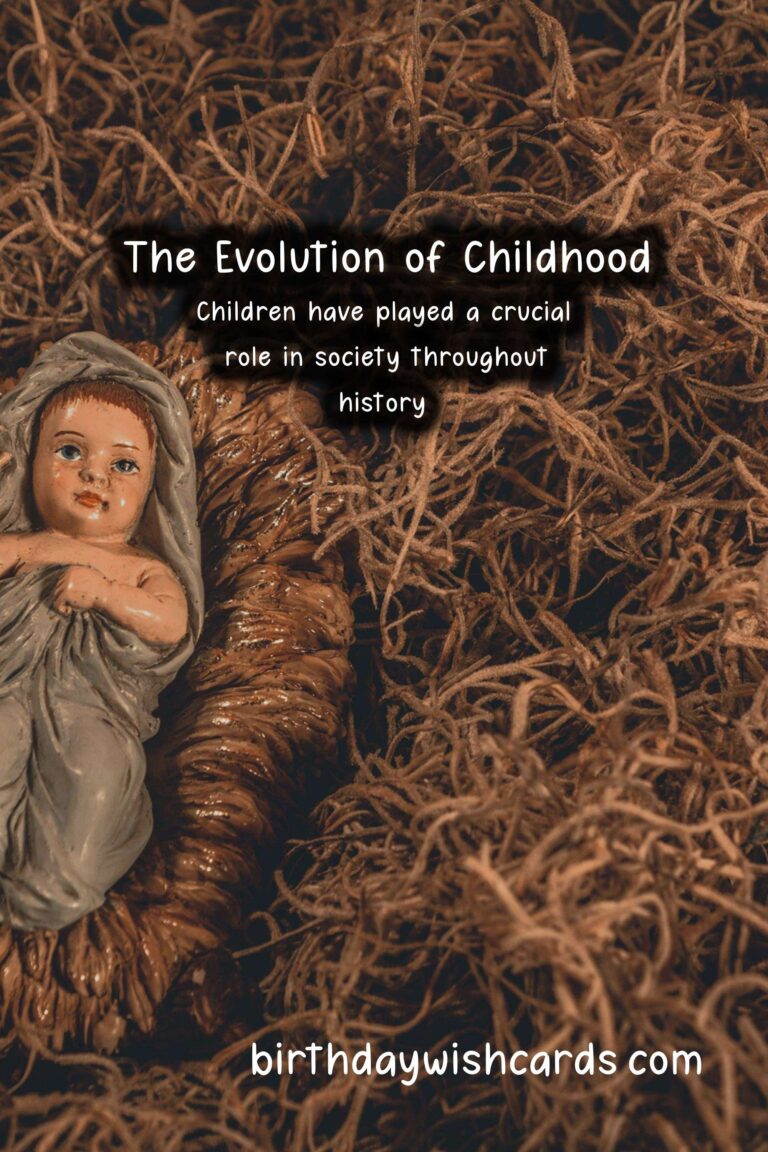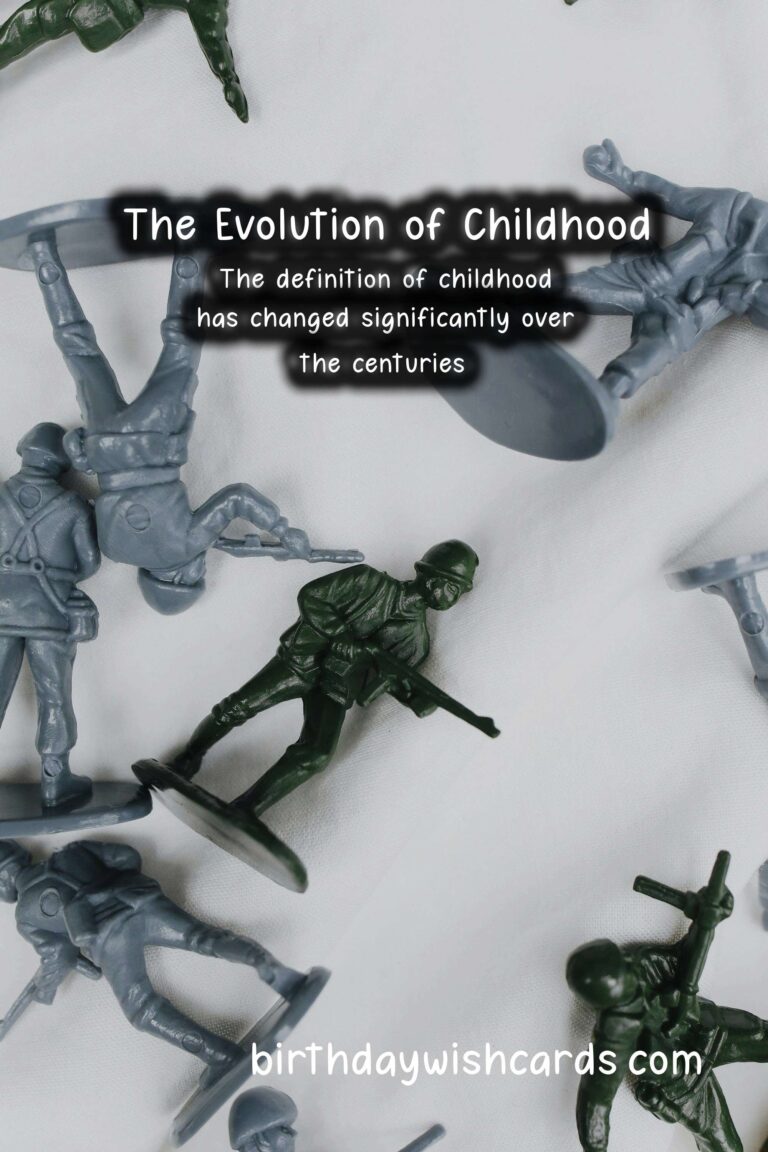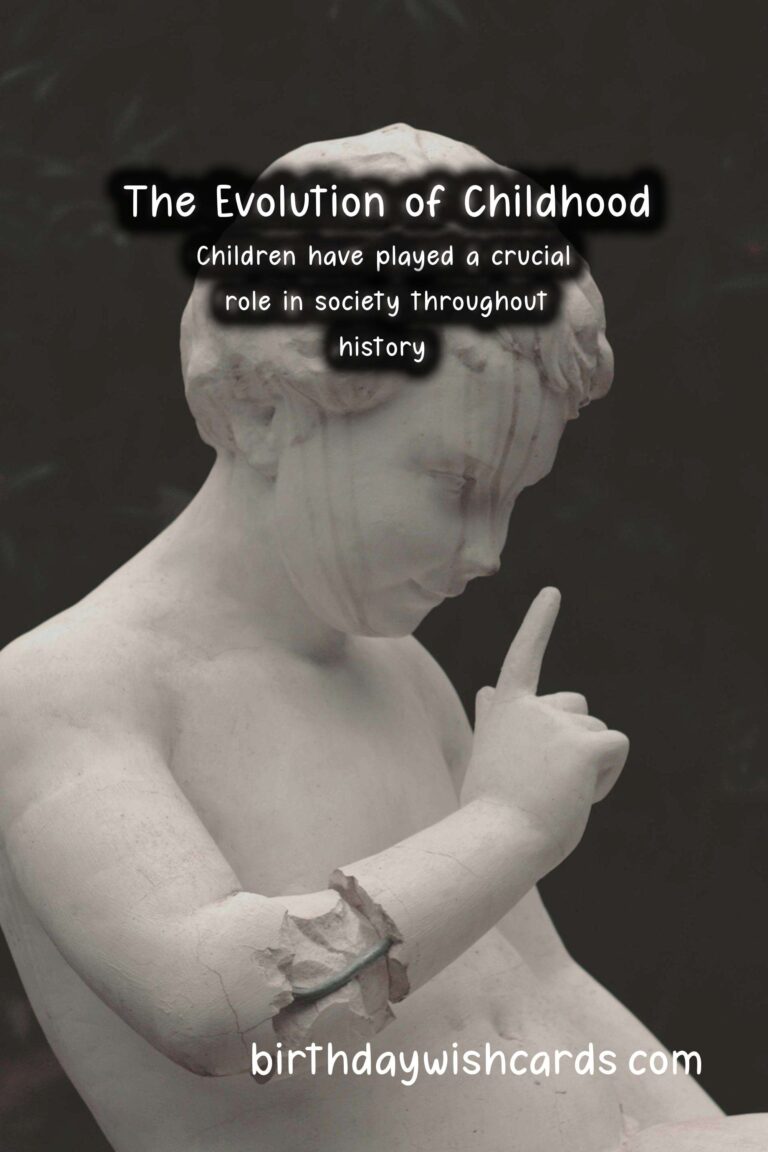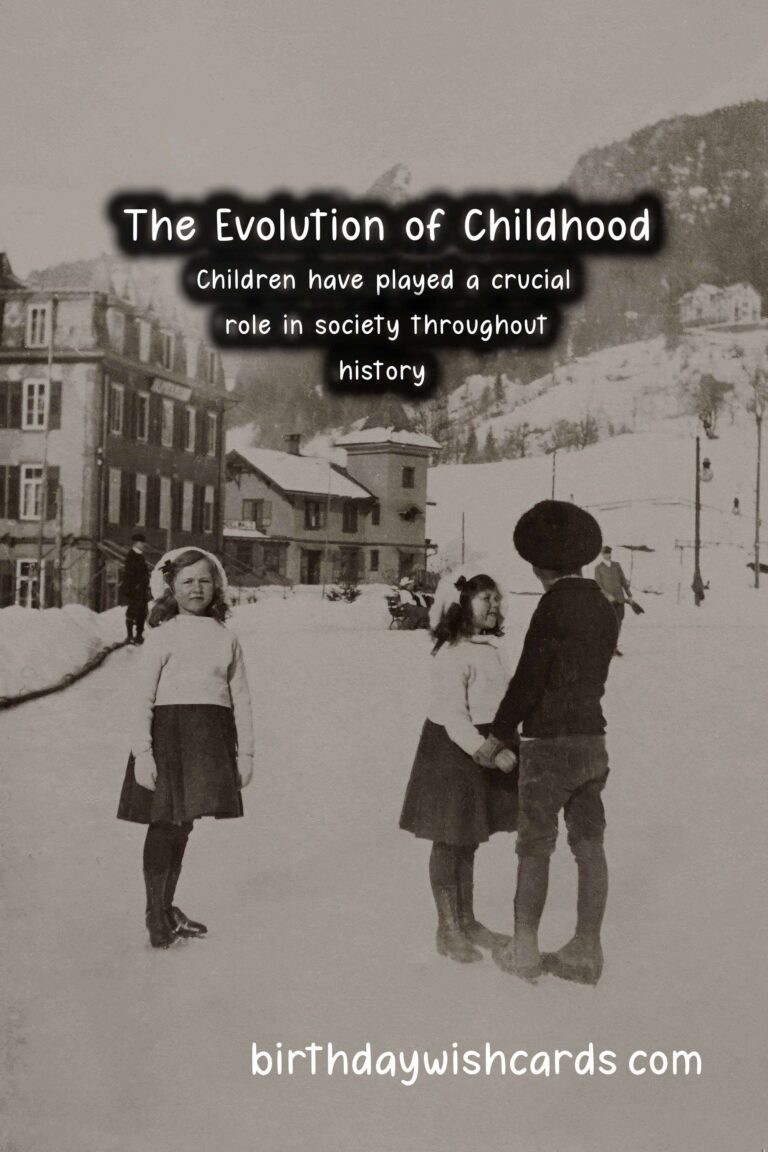
Throughout history, children have played a crucial role in society, not only as future generations but also as vital members of their communities.
The Concept of Childhood
The definition of childhood has changed significantly over the centuries. In ancient times, children were often seen as miniature adults, expected to contribute to family labor and responsibilities at a very young age.
In many cultures, childhood was understood differently, influenced by social, economic, and cultural factors. For example, in agrarian societies, children were considered assets, helping with farming and household chores.
Historical Perspectives on Childhood
In ancient civilizations such as Greece and Rome, children were often viewed with a mix of affection and utilitarian value. They were cherished, yet their contributions were anticipated to help the family.
During the Middle Ages, the concept of childhood underwent substantial transformation. The rise of Christianity marked a shift in attitudes toward children, emphasizing their purity and innocence. This notion gradually led to more protective laws regarding children’s welfare.
The Enlightenment and Evolving Perspectives
The Age of Enlightenment in the 17th and 18th centuries significantly influenced how society viewed children. Philosophers like John Locke and Jean-Jacques Rousseau began to advocate for the education and development of children, recognizing that they were not just small adults but individuals with unique needs.
The Industrial Revolution and Its Impact
The Industrial Revolution brought about drastic changes in children’s roles. As families migrated to urban areas for factory work, child labor skyrocketed. Children worked in harsh conditions, leading to widespread reform movements advocating for better living and working standards.
Childhood in the 20th Century
The 20th century saw significant legal and societal changes. Child labor laws were enacted, and the concept of childhood as a protected and cherished period gained acceptance. Education became more formalized, and children began to be seen as individuals deserving of rights.
Children’s Rights Movement
The UN Convention on the Rights of the Child, adopted in 1989, marked a pivotal moment in recognizing the fundamental rights of children worldwide. This document emphasizes that children should be afforded rights to education, healthcare, and protection from exploitation.
The Modern Significance of Kids
Today, children are regarded as important contributors to society, not just as future adults but as active participants in family and community life. Their perspectives are increasingly valued, prompting advocates to prioritize their voices in various discussions.
Conclusion: Why Kids Matter
In conclusion, understanding the historical context of childhood enriches our appreciation of its current significance. Children today are recognized as vital members of society who deserve nurturing, education, and protection.
The significance of children lies not just in what they will become but in who they are today. Their potential must be nurtured for a brighter future.
Children have played a crucial role in society throughout history. The definition of childhood has changed significantly over the centuries. 
